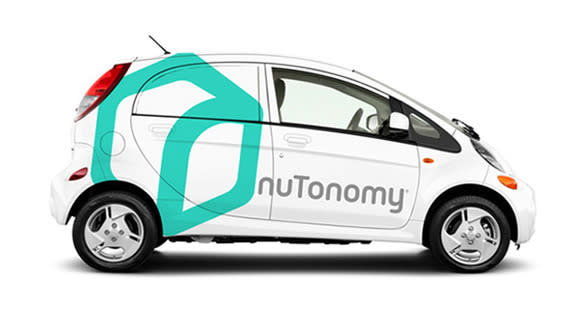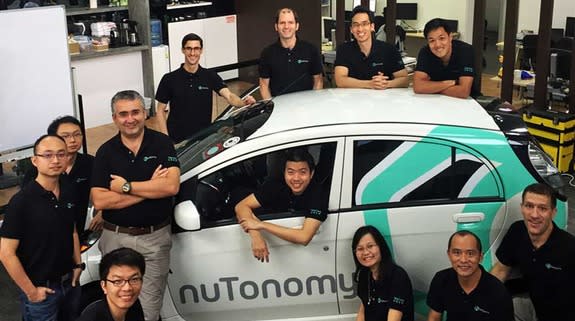Autonomous taxis may soon be coming to Singapore

One of the challenges of successfully deploying autonomous cars in major, congested cities is the sheer logistical hurdles involved in introducing driverless cars onto streets that in some cases are hundreds of years old.
That's why Singapore, a relatively young but incredibly rich and advanced city, is the perfect setting to bring autonomous cars to the public — a task that a startup called nuTonomy plans to do.
See also: Uber, Lyft drivers know they will be replaced by self-driving cars
The company has plans to launch thousands of driverless taxis in Singapore, a move that could serve as a perfect test case for other major cities around the world looking to introduce driverless cars to their streets.
In March, the nuTonomy autonomous vehicle passed its first obstacle course test in Singapore, according to a post from MIT, where nuTonomy co-founder Emilio Frazzoli serves as a professor of aeronautical and astronautical engineering.

Image: nuTonomy
That successful test has paved the way for the company to seek permission to test its autonomous vehicle in a small business district in Singapore.
Just a few weeks ago, the company landed $3.6 million in funding, which included a cash infusion from Samsung Ventures.
"NuTonomy's vision is to deliver the world's smartest autonomous vehicle and be the software engine of automated cars," Karl Iagnemma, CEO and co-founder of nuTonomy, said in a statement announcing the funding last month. "By applying advanced techniques from the aerospace industry, we're creating a self-driving car that is safe, confident and drives in a truly 'human-like' manner."
According to Frazzoli, nuTonomy's cars will operate using a combination of algorithmic software that employs fleet management, partially culled from his work on U.S. military drone management systems. The nuTonomy cars will also use LIDAR to detect cars on the road as well as stationary objects.
Addressing the concern that such efforts might put human workers, such as regular taxi drivers and even Uber drivers, out of work, Frazzoli expressed doubts that it would have any local effect.
"In Singapore, they want to have more buses, but they cannot find people to drive buses at night," Frazzoli says. "Robotics will not put these people out of jobs — it will provide more capacity and support that’s needed."
And while nuTonomy's driverless vision might worry some who make a living driving taxis, Uber itself has made no secret of its ambitions to one day do away with drivers via autonomous vehicles.
No date has been given for the company's on-the-road launch in Singapore. The only time reference mentioned in the MIT report, in terms of getting the fleet deployed, is described as "in a few years." But given nuTonomy's aggressive recent moves, its driverless cars may hit the road before most.


